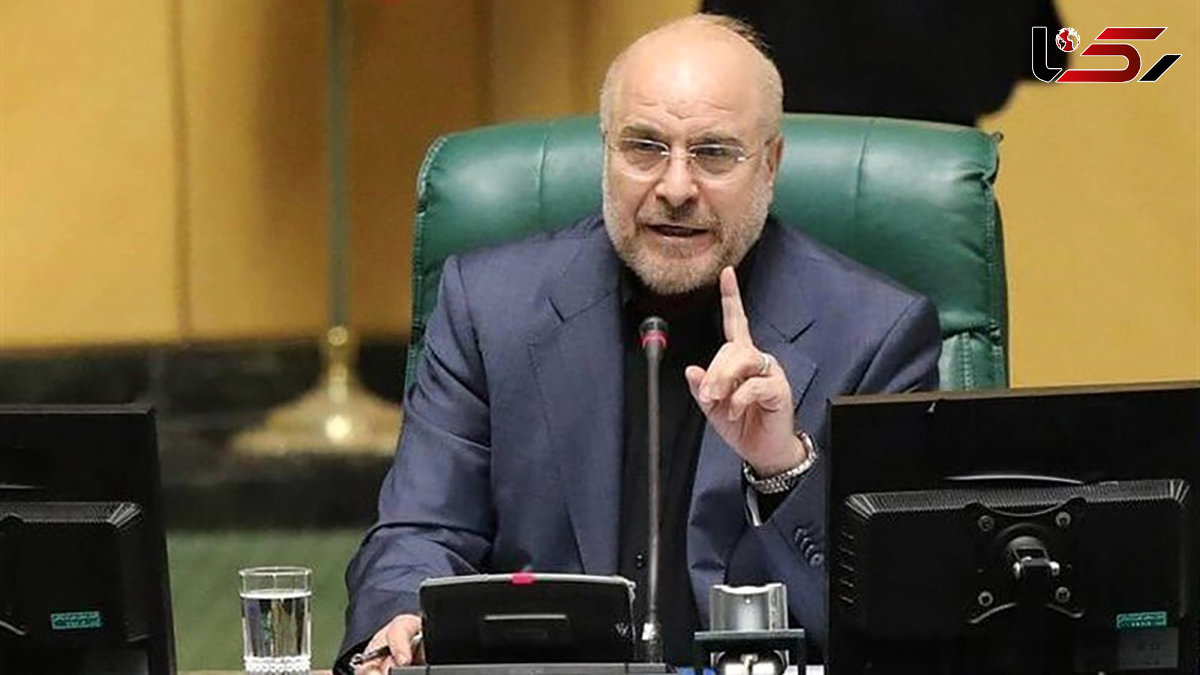Qalibaf: Law Observed in Suspension of Cooperation with IAEA / Presence of IAEA Inspectors in Iran
Rekna Political Desk: The Speaker of the Islamic Consultative Assembly (Iranian Parliament) responded to a warning from one of the MPs regarding the presence of International Atomic Energy Agency (IAEA) inspectors in Iran and the alleged non-compliance with the law mandating the suspension of cooperation with the IAEA, stressing that in this regard the law has been observed.

According to Rokna, quoting from Khaneh Mellat, Mohammad-Taqi Naqdali, representative of Khomeinishahr in the Islamic Consultative Assembly, during today’s session (Wednesday, 5 Shahrivar 1404), raised a procedural warning to the Speaker of the Parliament, saying: “We in Parliament passed a law, stipulating that until certain conditions are met—including full assurance of the preservation of national sovereignty and territorial integrity of the Islamic Republic of Iran, especially the protection of nuclear centers and scientists, and full assurance of the recognition of the inherent rights of the Islamic Republic of Iran—any cooperation with the International Atomic Energy Agency must be suspended. Verification of the fulfillment of these conditions, based on the report of the Atomic Energy Organization, lies with the Supreme National Security Council (SNSC). Whoever acts contrary to this law is considered guilty and subject to sixth-degree disciplinary punishment under Article 19 of the Islamic Penal Code.”
Referring to reports about the presence of IAEA inspectors in Iran, he added: “Today, in the course of the inspectors’ presence and their inspections, which of the conditions set by Parliament have been fulfilled? Has the security of our scientists been assured and confirmed by the SNSC?”
In response to the warning from the Khomeinishahr MP, Mohammad-Baqer Qalibaf, Speaker of the Islamic Consultative Assembly, stressed that the law has been observed, stating: “I explained this matter before the start of today’s session, and these provisions have been respected.”
Qalibaf: Government to Present Report on Seventh Development Plan by End of Shahrivar
The Speaker of Parliament also announced that, based on coordination between Parliament and the government, the government’s report on the implementation of the Seventh Development Plan will be submitted to Parliament by the end of Shahrivar.
According to Rokna, quoting from Khaneh Mellat, Mohammad-Baqer Qalibaf, during today’s public session (Wednesday), responding to a warning raised by Tehran MP Malek Shariati, said: “One of the valuable opportunities of the Seventh Development Plan is Article 118, which stipulates the establishment of a strategic council from the executive and financial perspectives, with the participation of observers from all institutions, chaired by the First Vice President, with the Secretary being the head of the Planning and Budget Organization, and with the presence of the Chairman of Parliament’s Budget and Planning Committee.”
He added: “By Shahrivar, both the performance report and the budgetary proposals for the coming year, aligned with the program, must be submitted to Parliament. In this regard, necessary coordination between Parliament and the government has been carried out, and the Oversight Department has taken good measures.”
The Speaker explained: “According to Note 2 of Article 118 of the Seventh Development Plan, this report will be presented to Parliament in the format of Article 41 of the Rules of Procedure, i.e., like a bill or proposal. It will be referred to the committees, and its conclusions will be drawn up in the Planning and Budget Committee before being submitted to the plenary session.”
Qalibaf added: “In recent days, two extensive sessions have been held on this issue, and God willing, before the end of Shahrivar, this report will be submitted to Parliament. This is one of the precise and important measures so that we can review the budget along with the program, in accordance with Article 119, which emphasizes that the budget annexes must be submitted to Parliament in order to avoid any violation of Article 75.”
Tehran MP Malek Shariati, in his warning, said: “According to Articles 236 to 239 of the Parliament’s internal regulations, the President and ministers must each year, on the anniversary of their vote of confidence, present a report on their performance and outline the plans for the following year. These reports must then be reviewed in specialized committees and by the Research Center, and the summary of ministers’ performance must be presented in the committees and in the plenary session, where the chamber will decide on them. This expert-driven process is envisaged in the regulations.”
Send Comments